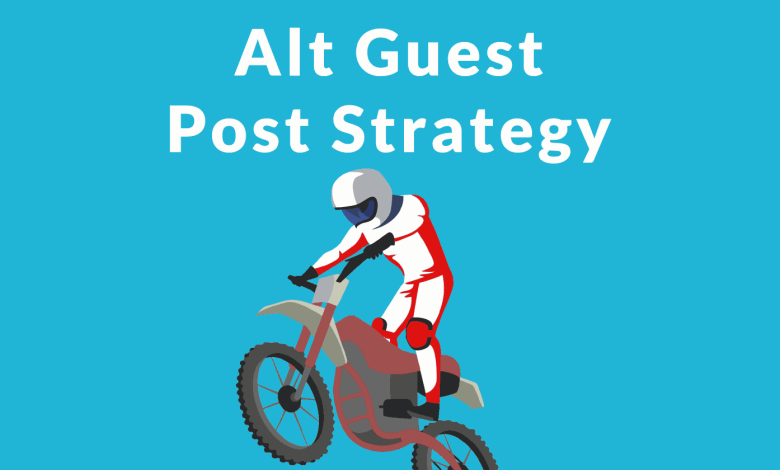
When it comes to link building, there comes a point where ideas must become speculative. Aside from obvious link spam, determining exactly how Google reacts to certain kinds of links is uncertain.
The fact that it’s challenging to know if Google is not passing PageRank from a link makes it difficult to assess whether a strategy is effective or not.
Guest article link building is a straightforward method of building links. Its popularity, however, has led to potential misuse. Years ago, former Google engineer Matt Cutts advised against guest blogging.
My view on guest article link building is based on experience. If you’re cautious and prefer to play it safe, avoid attempting to build links with articles unless using a no-follow link.
Adopting this approach can open new opportunities.
### Why Might Guest Articles be Penalized or Demoted?
Not every guest article project incurs penalties. It’s hard to determine why some fail, but my guess is that placing articles on sites with poor outlinks could be problematic.
I believe Google relies heavily on outbound link patterns between sites to detect spam networks. Spam sites form networks of interconnected spammy sites. Linking to normal sites doesn’t prevent the formation of these spam networks, as Google can still identify them.
Non-spam sites typically don’t exist within these networks because they don’t link to spam sites.
Thus, it’s still possible for sites within “normal” link neighborhoods to engage in certain practices and avoid issues beyond having their links demoted.
By mapping link networks to identify spam neighborhoods, Google can theoretically remove those pages from the ranking equation altogether.
On the other hand, Google can still display quality websites without relying on their questionable inbound links for ranking purposes. The notion of sites that are “too big to fail” has been around for a while.
In my view, the idea that a site is too big to fail isn’t why they don’t fail. It’s more about user demand for certain sites, obligating Google to display them regardless of any link spam.
Can you imagine Googling for eBay and it doesn’t rank at the top? It might seem unfair, but it isn’t sensible to penalize a site that users want to see.
### Guest Article Tactics to Avoid
Here are some practices I believe should be avoided. A rule of thumb is, if it’s designed explicitly to manipulate Google (rather than help users), it’s problematic.
1. Multiple links back to the promoted site
2. Keyword-rich anchor text
3. Promotional text links within the articles
4. Articles on sites that require payment for publication
5. Articles on non-SEO sites that host articles and links to SEO sites. If a site is unrelated to SEO and features articles by SEOs for their benefit, I consider it compromised. Use any non-relevant phrase to test a site’s relevancy, not just SEO-related phrases.
6. Sites publishing articles linked to low-quality websites, which are heavily optimized for rankings and affiliate sales.
### Beware of Copying Your Competitors
Just because a competitor is heavily invested in guest article posting doesn’t mean you should follow suit. Their rankings might not result from these articles. Even if they do, links aren’t the sole reason Google ranks one site over another. Ultimately, content and user expectations determine top rankings.
### A Safe Way to Build Article Links
The safest approach to guest articles is to avoid considering them as link-building projects. Instead, view them as a way to raise awareness of your site, product, or service.
As awareness increases, demand grows, and people begin expecting to see your site in search results. Google ranks pages that users expect to see and that feature the answers users look for.
Therefore, rather than focusing on influencing Google with metrics like links, it makes more sense to focus on influencing people with a great product, excellent service, or useful information.
Guest article projects aimed at increasing awareness of these strengths, in my opinion, present a more effective way to approach guest articles. This involves putting nofollows on all links back to your site.
### User-Centered Article Marketing
New opportunities arise when shifting the purpose of guest articles away from influencing Google and toward influencing people.
The fact that a news organization doesn’t link out is irrelevant. The goal is to spread the word. There’s no reason to be upset or dismiss a news site that doesn’t link out; it’s essentially free advertising.
Focusing on influencing people opens up possibilities for print projects, newsletters, and podcasting initiatives. There are almost no limits to how far you can take this approach. Instead of trying to influence Google, you might find it more rewarding to influence users, without worrying about Google’s stance on it.
### Additional Resources


